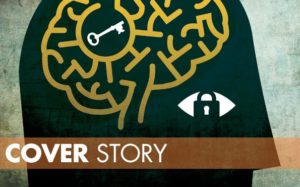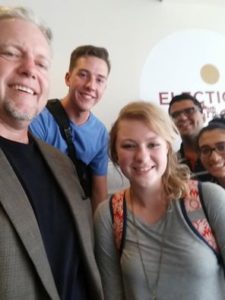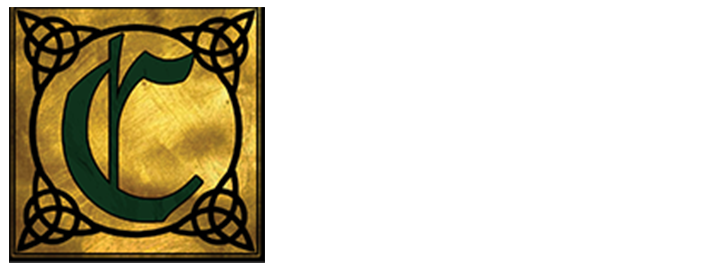“So many are so depressed!”
 A remark from a student tutor created a discussion about why college students may be depressed. A few at the lunch table began to offer suggestions toward help.
A remark from a student tutor created a discussion about why college students may be depressed. A few at the lunch table began to offer suggestions toward help.
“What if you created a short questionnaire? The questions might prompt student reflection and an opportunity for practical suggestions.”
 The discussion took off from there.
The discussion took off from there.
One after another the ideas flew. We began to create questions for the tutor’s questionnaire. The point was to get young people to be introspective about their own feelings, their own behavior.
-
How much sleep do do you get a night?
-
What is your diet like? Are you eating too much fast food, sugar, and carbs?
-
How often do you exercise? Do you work out with a partner for accountability?
-
How much social media do you consume? Do you recognize negative emotions after scrolling through Facebook, Twitter, Snapchat, or Instagram?
“These are all great questions!” We were all scribbling notes.
#4 is a BIG influence on campus! College students are consumed with social media AND what others think of them! If all they see is the success of others they tend to see their own lives as a failure.
“One more would make five, a good number for a questionnaire!” someone else declared.
 “Aren’t we forgetting something?” a young man at the table offered. “Shouldn’t we ask if they have any hope?” Heads nodded around the table. “Perhaps after your tutoring session you could leave the door open to talk about your hope as a Christian.”
“Aren’t we forgetting something?” a young man at the table offered. “Shouldn’t we ask if they have any hope?” Heads nodded around the table. “Perhaps after your tutoring session you could leave the door open to talk about your hope as a Christian.”
The tutor smiled. “Absolutely! What a great final question! These questions give me great ideas! I can’t wait to use them with all the students I help, depressed or not.”
 Every week, every conversation, every Comenius campus episode is different than the next. But they all have one thing in common – young people are connecting biblical wisdom to their studies, to their every day lives.
Every week, every conversation, every Comenius campus episode is different than the next. But they all have one thing in common – young people are connecting biblical wisdom to their studies, to their every day lives.
AFTERWORD
We are made as whole people. Compartmentalizing ourselves into pieces and parts (intellect, emotion, will, body, spirit, etc.) destroys the unique totality of the individual. Persons are complex. Reading the Psalms we find ourselves struggling with obedience (Psalm 1), rebellion (Psalm 2), sleeplessness (Psalm 3), distress (Psalm 4), expectation (Psalm 5), repentance (Psalm 6), etc. The Psalms are also full of joy, reliance, trust, love, gratitude, etc. (e.g. Psalm 16).
Rehearsing Mary’s joy, the Greek term in Luke 1 suggests such excessive gladness that words are linked with actions. Dancing, shouting, and leaping for joy is linked with the joy of salvation (Is 61:10; 65:19; 66:14; Acts 2:26). Joy is caused by our hope in Christ (1 The 2:19). Exultation marks response to Scripture (Ps 119:162). Joy-soaked-salvation brings a cheerful response in serving and giving (Rom 12:8; 2 Co 9:7). The community joins the individual to rejoice over honor bestowed (1 Co 12:26). The Hebrews used a word meaning “circle in around” indicating human exuberance over creation, a wedding, or a father delighted in his son (Ps 118:24; Ps 45:15; Pro 23:25).
The practice of benevolence toward others is what it means to practice one’s Christian faith (Titus 3:1, 8, 14). Works of service to others originate first from God (John 15:5-6; Phil 1:11; Col 1:6). Christians then imitate God’s standard, taking care of their own (Acts 4:32-37).
 Dr. Mark Eckel loves spending time with Christian young people on the college campus each week. Mark is President of The Comenius Institute (website), spends time with Christian young people in public university (1 minute video), hosts a weekly radio program with diverse groups of guests (1 minute video), interprets culture from a Christian vantage point (1 minute video), and his video teaching on Old Testament Overview, Wisdom, and Suffering is also available (video).
Dr. Mark Eckel loves spending time with Christian young people on the college campus each week. Mark is President of The Comenius Institute (website), spends time with Christian young people in public university (1 minute video), hosts a weekly radio program with diverse groups of guests (1 minute video), interprets culture from a Christian vantage point (1 minute video), and his video teaching on Old Testament Overview, Wisdom, and Suffering is also available (video).


